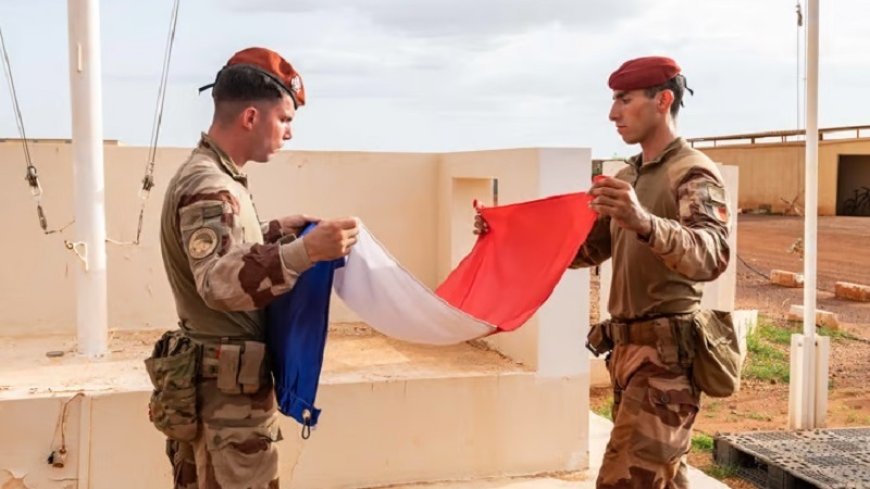Ivory Coast President Alasanne Outlara, Tuesday (31/12/2024) in his year-end address to his people, announced that the 43rd Battalion of the BIMA Marine Infantry, in the port of Port-Bouët, Abidjan, headquarters of the French forces, will be handed over to the Ivory Coast Armed Forces in January 2025.
France currently has 600 military personnel in Ivory Coast. As anti-French sentiment in the former French colonies grows, the Paris government has decided to reduce its troop numbers in the West and Central African country.
In this regard, the number of French troops in Ivory Coast is now 600 from the initial 2,200. Now the 600 French troops must also leave Ivory Coast.
The French government thought that by reducing the number of its troops it could maintain its military and political influence in Africa. However, this French strategy did not produce results.
The former French colonies demanded a total end to the political and economic domination of this European colonial state, and wanted relations based on respect, not on a policy of domination.
French troops have now withdrawn from 70 percent of African countries. The great European colonial power has 1,500 troops in Djibouti alone, and 350 in Gabon.
The changes taking place in some African countries are part of a broader structural change in the interactions of former French colonies in Africa, amid rising anti-French sentiment in the region.
The governments of Mali, Niger and Burkina Faso, following the withdrawal of French troops, have established closer ties with Russia and China. Observers believe African countries are breaking free from French restrictions and are beginning to achieve greater independence.
French President Emmanuel Macron, during a visit to African countries, repeatedly stressed that Paris is not an enemy of African countries. But France, it turns out, is late in thinking about efforts to improve its bad image hated for colonialism in former colonial countries among young people.
Young people who are thirsty for information, and are constantly being presented with explosions of information and extensive communication, are in reality trying to find their country's position in the international arena.
Therefore, at the international level, and in relation to most of the crisis centers, a more independent African voice is being heard more than in previous years.
Previously, France, sought to create a francophone society , in French-speaking countries and former French colonies, so that they could play an effective role in the constellation and political decision-making in those countries.
After the wave of demands for independence emerged in Africa, France, trying to maintain its political and economic dominance over the African people, so that it could continue to plunder and loot their natural resources, by supporting dictatorial governments in those countries.
After the 1960s, France, became the mastermind of 30 coup attempts in African countries. As its power began to fade in Europe, France, also faced the same thing in Africa.
Therefore, Macron, acknowledged the continuing anger towards France in African countries, and urged the establishment of a new, more balanced, two-way and responsible relationship with Africa.
The French President, stressed that Africa is not France's “backyard,” and he stressed that his country must be more humble and listen to the voices of African countries.

